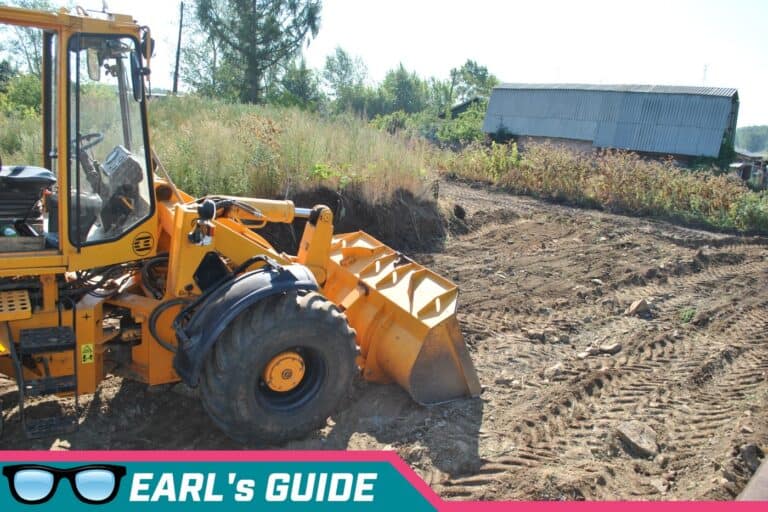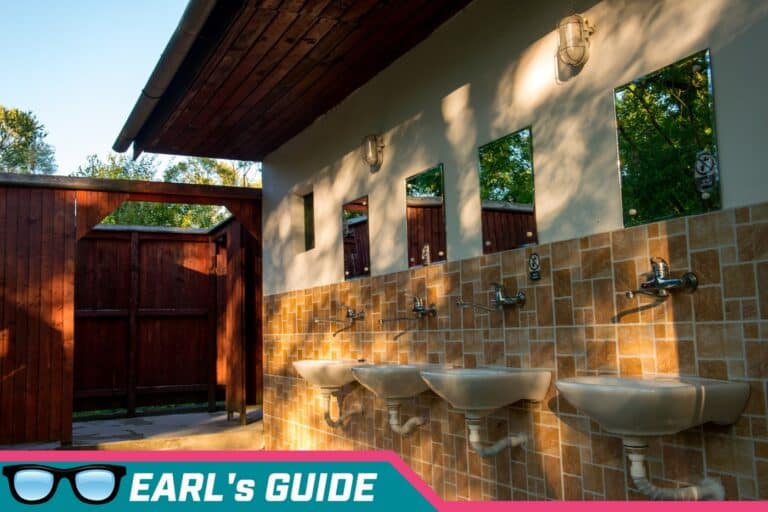Pickleball in RV Parks: Is One Court Enough for 100+ Spaces?
Pickleball, the paddle sport that combines elements of badminton, table tennis, and tennis, has experienced a surge in popularity over recent years. This growth is evident in the rising number of RV parks considering integrating the sport into their list of amenities. But when making the decision, RV park owners face a few common questions: “Is one court enough for a park with 100+ spaces?” and “Should I be concerned about noise complaints if the court is near spaces?” In this article, we’ll delve into these questions and explore the pros and cons of adding a pickleball court to an RV park.
Is One Court Enough?
The answer is contingent on the demographics of your RV park and the perceived demand for pickleball amongst your guests.
- Demographics: If a significant portion of your RV park guests are within the age bracket where pickleball is popular (generally the older population), the demand will naturally be higher. The sport is renowned for being a hit among retirees, given its low-impact nature.
- Utilization: Much like tennis courts or swimming pools in RV parks, not every guest will utilize the pickleball court. If you’re finding that only 10% of your guests are interested in playing, one court could suffice. However, if the sport becomes a major attraction at your park, you might find queues forming, indicating a need for additional courts in the future.
Noise Concerns:
Pickleball can be quite a noisy game due to the paddles striking the wiffle balls. If the court is situated near spaces:
- Proximity to RV Spaces: The closer the court is to the RV spaces, the likelier it is for guests to hear the game. This might be disruptive for those seeking a peaceful and quiet environment, especially if games extend into the early evening.
- Noise Barriers: Consider implementing noise barriers such as tall bushes, trees, or dedicated fencing around the court. These can act as buffers, reducing the impact of noise on nearby spaces.
Pros of Adding Pickleball to an RV Park:
- Attractiveness: For enthusiasts of the game, a pickleball court can be a strong draw. It adds an element of recreation and can be a unique selling point, setting your RV park apart from competitors.
- Social Interaction: Pickleball is not just a game; it’s a social event. It provides an avenue for guests to interact, fostering a sense of community within the park.
- Health Benefits: Encouraging physical activity among guests promotes a healthy lifestyle. Pickleball is low-impact, making it suitable for players of all ages.
- Potential Revenue: Depending on the demand, RV parks can charge for court time, offering an additional revenue stream.
Cons of Adding Pickleball to an RV Park:
- Noise: As mentioned earlier, the sound of paddles striking balls can be bothersome for some guests, especially those seeking tranquility.
- Maintenance: Like any amenity, a pickleball court requires upkeep. The surface needs regular cleaning, and nets and boundaries must be maintained.
- Space Utilization: A pickleball court can take up considerable space, potentially crowding out other amenities or spaces.
- Initial Investment: Setting up a court, especially a high-quality one, can be expensive. This includes the costs of surfacing, netting, and possibly lighting for evening play.
Q1: What are the standard dimensions for a pickleball court, and how does this fit into the average RV park layout?
A1: A standard pickleball court is 20 feet wide and 44 feet long for both singles and doubles play, with a total playing area of 880 square feet. The net height is 36 inches at the sidelines and 34 inches at the center. When considering space for your court, you’ll also want to account for additional room around the court for player movement, benches, and spectators. A safe estimate is to allocate an area of approximately 30 feet by 54 feet (or 1,620 square feet).
For RV park owners, this means designating a fairly sizable area for the court. Ideally, you should select a flat location with good drainage. Some RV parks integrate the court near communal areas, pools, or clubhouses, ensuring the court becomes a hub of social activity.
Q2: What kind of surface is best for an RV park pickleball court, considering varied weather conditions and the occasional need for repurposing the area?
A2: While pickleball can be played on a variety of surfaces, including concrete, asphalt, and even grass, for RV parks — where flexibility and durability are key — a modified acrylic or resin-based surface is often recommended. This surface provides a balance of grip and playability, and it’s durable enough to withstand varied weather conditions. Another advantage is that it can be resurfaced or repainted relatively easily if wear and tear become apparent.
If the RV park intends to use the area for multi-purpose events occasionally, a modular tile system might be beneficial. These tiles snap together to form a court and can be disassembled when the area needs to be repurposed. While they are a bit more expensive initially, their flexibility can justify the cost.
Q3: How can I ensure that the noise from the pickleball court doesn’t disturb other guests in the RV park, especially those in nearby spaces?
A3: It’s true that pickleball, with its hard paddles and wiffle balls, can produce a unique sound that some might find disruptive. If noise is a concern, consider the following strategies:
- Strategic Positioning: Place the court in an area that’s slightly removed from the densest clusters of RV spaces.
- Buffer Zones: Implement natural sound barriers like tall bushes, hedges, or trees around the court. This vegetation can absorb a good amount of noise.
- Restricted Play Hours: Set and enforce specific hours of play, ensuring that early mornings and late evenings remain quiet.
- Quality Equipment: Invest in higher quality balls or paddles designed to produce less noise. There are “quieter” pickleball balls and paddles available in the market designed for noise-sensitive environments.
Q4: Are there opportunities to generate additional revenue for the RV park with a pickleball court?
A4: Absolutely! Here are some strategies to turn your pickleball court into a revenue generator:
- Equipment Rentals: Not all guests will have their own gear. Offer paddle and ball rentals for those wanting to try out the sport.
- Clinics and Classes: Host beginner clinics or strategy sessions. You can either hire a local instructor or partner with pickleball associations.
- Tournaments: Organize regular tournaments with an entry fee. This not only generates revenue but also fosters a sense of community within the park.
- Sponsorships: Local businesses might be interested in sponsoring your court, tournaments, or events in exchange for branding or advertising opportunities.
- Reserved Court Times: Offer prime-time slots for guests willing to pay a bit extra for reserved playtime.
By strategically integrating these revenue streams and ensuring high maintenance standards for the court, RV park owners can ensure a return on their investment while offering guests a value-added experience.
The decision to add a pickleball court to your RV park hinges on a balance of guest demand, space availability, and the potential pros and cons discussed. Given the sport’s increasing popularity, it’s evident that many see it as a value addition. However, it’s crucial to gauge interest levels among your regular guests and perhaps even run a survey to determine the potential uptake.
If you opt to integrate a court, consider pilot-testing with a temporary setup first. Monitor utilization and gather feedback about the noise and other concerns. This approach will provide real-world insights and guide a more permanent implementation. Above all, the primary goal should be enhancing guest experience. If a pickleball court aligns with this vision and adds value, it’s a worthy addition to your RV park.

Robert Earl
Robert EarlRobert has 20+ years of experience as a Real Estate Agent, Coach, Digital Marketer & Author, coupled with a unique expertise in professional RV Park Management. His time as an RV Park Manager has been marked by a strong ability to increase campground occupancy and revenue through strategic management and targeted marketing efforts. His dual career in online marketing and RV Park Management provides a rich perspective on success in diverse fields. Robert Earl is passionate about teaching and empowering others to pursue their dreams and create sustainable income. Whether through a career in real estate, affiliate marketing, niche blogging, or transforming campgrounds into thriving communities, his proven strategies and techniques have helped numerous individuals and businesses succeed. Based on his years of experience and knowledge in the online marketing industry, along with his hands-on management in the RV Park sector, he has crafted a unique and effective approach to personal and professional growth. In addition to his business pursuits, Robert is also a CrossFit Online Level 1 Trainer (CF-OL1) and enjoys fitness activities, including Rucking workouts while traveling the country. His multifaceted career showcases his dedication to growth, innovation, and the pursuit of excellence in various domains.






